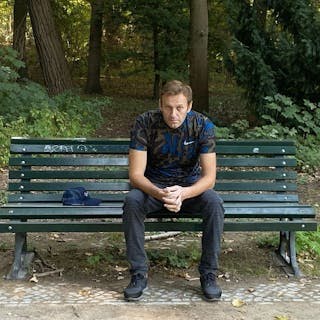How a Democratically Elected Leader Behaves in the Face of Adversity
- Thread starter bill barilko
- Start date
You are using an out of date browser. It may not display this or other websites correctly.
You should upgrade or use an alternative browser.
You should upgrade or use an alternative browser.
The 1993 constitution declares Russia a democratic, federative, law-based state with a republican form of government. State power is divided among the legislative, executive, and judicial branches. Diversity of ideologies and religions is sanctioned, and a state or compulsory ideology may not be adopted.
Constitution: Constitution of Russia
en.m.wikipedia.org › wiki › Politics...
Constitution: Constitution of Russia
en.m.wikipedia.org › wiki › Politics...
Politics of Russia - Wikipedia
How to steal an election, Russian-style
Over time, the Putin regime systematically consolidated its domination over politics, turning elections from a democratic contest into a controlled system that delivered regime victories.Russian elections are now state-directed performances that eliminate opposition. Random targeted arrests and violence – especially against those who try to lead alternative political movements – are common. Alexei Navalny, leader of a reform movement and now recovering from a poisoning, could tell us a lot about that. So could Yegor Zhukov, a student blogger who was arrested and convicted of extremism and then beaten outside of his home for his political actions.

Even eliminating viable opposition can’t ensure certain victories at the polls. To eliminate all risk, as Russia demonstrates, autocrats must take four additional steps:
- Dominate the media message by controlling major news outlets through ownership, creating laws that stifle press freedom and repressing outspoken journalists.
- Assert control over local government officials who then ensure that voters turn out to support the regime.
- Build a vote tabulation process that allows ballot stuffing and falsified vote counts.
- Declare victory immediately and allow no questioning of the results.
Together with legislative allies, the Kremlin changed electoral laws at every election to maintain the dominance of the pro-Kremlin party.
Government officials, including governors and mayors who rely on the Kremlin to keep their jobs, also have developed informal practices to deliver victories. For example, local officials demand that state workers in factories, hospitals and schools turn out to vote. It’s common to insist that employees bring other voters with them or face losing their jobs. These officials also put paid loyalists on buses to vote at several polling stations in a single day.
There is an unwritten regulation that poll workers must be members of the pro-Kremlin party, United Russia. And they count behind closed doors, padding the vote as they go.
Redirect Notice
www.google.com
At least Putin puts his country first. Biden won't.I'd rather have Putin than Biden as President
What’s the difference when those who counts the votes win . Kinda like the Republic to our south .Putin was NOT democratically elected. Russia isn't a democracy.
It's an unwritten constitution cuz most of y'all can't read.Thank God I live in a constitutional monarchy.
It's not actually unwritten. That's a myth by people who misunderstand it.It's an unwritten constitution cuz most of y'all can't read.